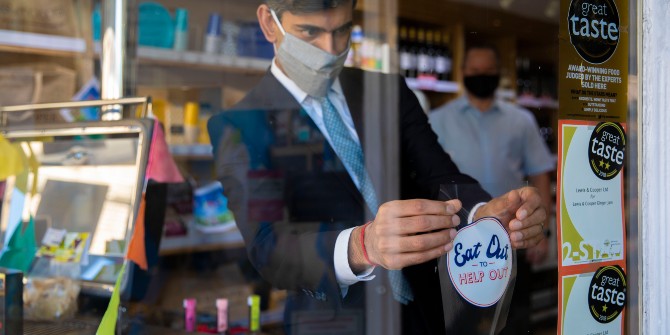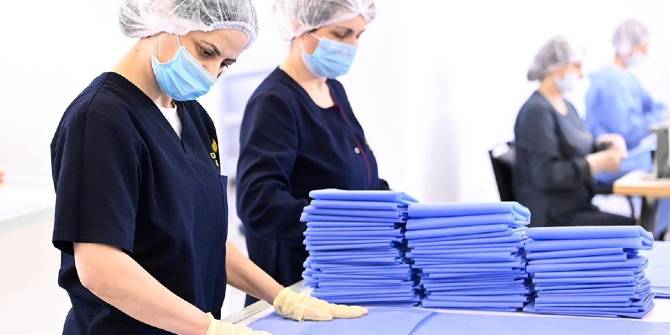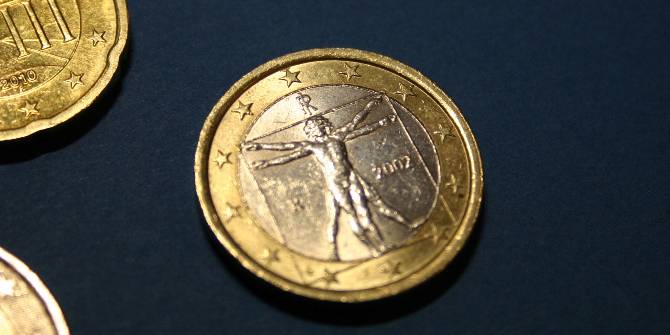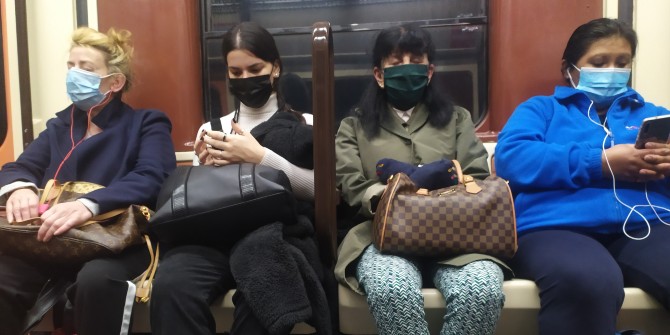At the moment, governments are subsidising wage costs and lending businesses money to enable them to survive the pandemic. To spread the burden more fairly through society, Tsjalle van der Burg (University of Twente) proposes imposing price controls instead.
In the Netherlands, all pubs, hotels and restaurants have been closed since 15 March. In early May the government announced that these firms can (possibly) reopen on 1 June, but with tight capacity constraints. No one knows how long the constraints will last, and how they will change over time.

To help firms deal with the financial consequences, the government is subsidising their wage costs. But these subsidies do not cover all costs, including rents. Fortunately new government guarantees enable firms to borrow additional money to cover such costs. However, there is a limit to the debts a firm can incur and repay. A small number of Dutch hospitality firms have already gone bankrupt in recent weeks, and many more may follow.
Dutch professional football is confronted with a ban on mass gatherings until at least September. The government is expected to rule at some point that the clubs can hold matches again, but fans will only be able to watch them on TV. The government has also introduced strict rules in some other industries, all aimed at protecting public health. The focus of this post, however, is on another point – which is that a government that introduces far-reaching public health measures should think systematically about which measures are needed to counterbalance their negative economic effects.
At this moment, the counterbalancing measures still consist mainly of government guarantees to help firms to borrow money, which will increase their debts, and government subsidies and other direct financial contributions. To finance this aid, the government will borrow more money and so increase its own debt. However, more government debt will lead to future expenditure cuts that harm the economy, and larger company debt will lead to more bankruptcies. Indeed, debt will become the main economic bottleneck in this crisis, in the Netherlands and beyond. Therefore, the governments should try to limit both kinds of debt as much as possible. How can this be done?
Price controls
In a state of emergency the government has the right to introduce emergency laws. The Dutch government is currently drafting an emergency law to legitimise certain public health measures. However, it also needs to allow the Dutch government, and other governments, to introduce price controls in industries that are directly harmed by the public health measures.
A government could use such a law to reduce the rents of pubs, hotels and restaurants to zero for as long as they are closed. As and when the government rules that these firms can reopen, but are only allowed to use their buildings to, say, 50% of full capacity, the rents can be set at 50% of pre-corona levels. Rent controls like this would mean lower debt and fewer bankruptcies in the hospitality sector. Likewise, the government will lose less money on its loan guarantees, and its debt will be lower.
Of course, the buildings’ owners will be harmed directly by rent controls. However, they are on average wealthier than entrepreneurs in the hospitality sector, and in a better position to survive bad economic times. By placing part of the burden of the corona crisis directly on these owners, there will be fewer debts and bankruptcies in the supply chain as a whole.
In any case, the owners of the buildings will be harmed even without rent controls. The high rents will lead to more bankruptcies in the hospitality sector, more empty buildings, and lead to more financial problems in the real estate sector. But while bankruptcies in the hospitality sector can cause problems in the real estate sector, the reverse does not hold. Buildings will still be available for businesses to rent.
Other price controls can be useful too. Theatres, cinemas and museums are basically in the same position as restaurants and pubs, and similar price controls can be introduced there.
European professional football has also been seriously hurt, and some clubs and associations are talking about financial aid from the government – but such help would be a waste of money. The clubs’ real revenues are currently much higher than in 1960. The increase has gone mainly to the players; they receive more than 50% of total revenues. As a result, the sector has high levels of economic rent in the form of players’ salaries. Indeed, most professional clubs in the highest leagues may well be able to survive the corona crisis without any financial aid from the government. All the government needs to do is enforce a reduction in players’ salaries to an appropriate degree (with the better players paying the largest part of the bill).
In the aviation sector, many planes are leased. Here, the government could reduce the lease price of grounded planes. In Europe, this might require an emergency law at the EU level. Whether this is possible is a question for legal and political experts; from an economic perspective, though, it would be sensible because it would reduce the chance of airlines going bankrupt and requiring state bailouts. Moreover, if some leasing companies go bankrupt as a result of the price controls, the planes remain available for the airlines and the aviation industry is not harmed. Of course, the leasing companies’ shareholders and creditors will be harmed, and the ethical considerations of that move are beyond the scope of this post.
Aren’t these measures too radical? Not at all. Governments are taking radical measures already. Preventing football fans from attending matches and imposing strict social distancing on pubs are radical policies. By spreading the burden of these policies we can mitigate the worst of their effects.
This post represents the views of the author and not those of the COVID-19 blog, nor LSE.
Tsjalle van der Burg is an Assistant Professor in Economics at the University of Twente, Netherlands.






2 Comments